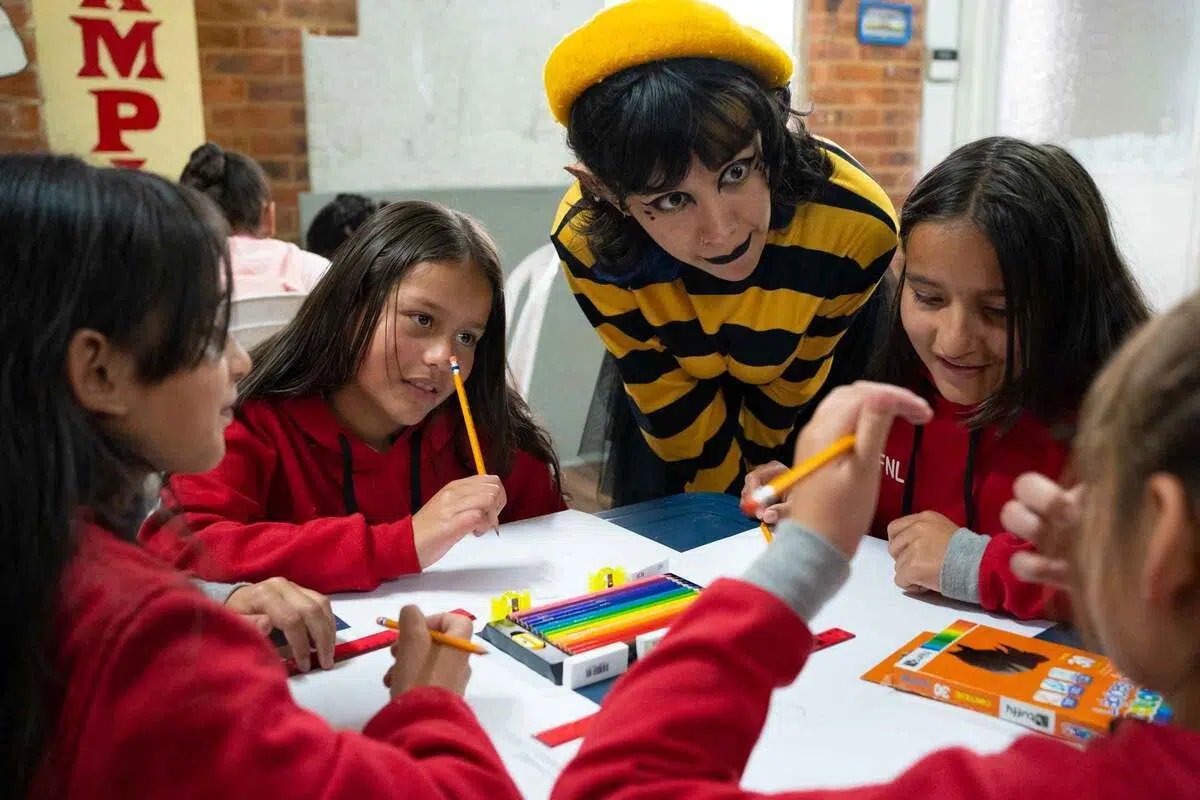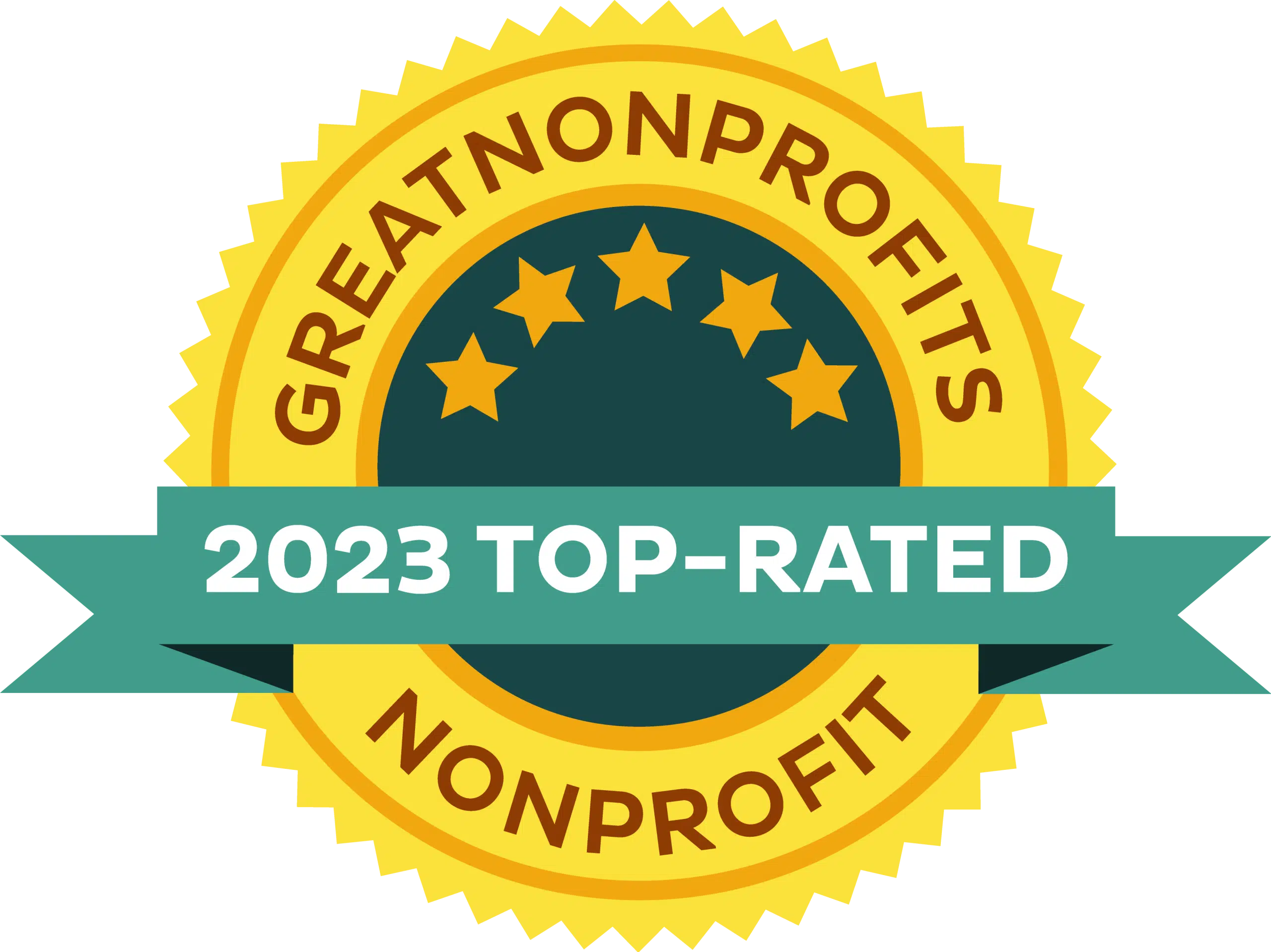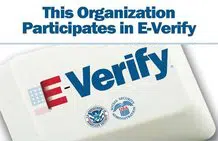After reading through the FAQs below, do you still not see an answer to your question? Fill out the inquiry request form here and we’ll get back to you as soon as possible.
Interested in applying for an Education and Culture Sub-Award? Learn all you need to know about the application process, proposal writing tips, and important eligibility requirements in our following sessions live or recorded:
- Education & Culture Sub-Award Information and Building Lasting Partnerships – Wednesday, January 12, 2022 at 2pm ET – View the recording here.
- How do I Apply? Navigating the Sub-Award Website – Tuesday, January 18, 2022 at 3pm ET – View the recording here.
- Building Blocks of Budget Creation and Management – Thursday, January 20, 2022 at 2pm ET – View the recording here.
Competition Eligibility
1. What are the eligibility requirements?
- All applicants must be a POA Chapter or Affiliate Organization, or Implementing Partner (Organization that will support POA program implementation). Different from previous competitions, a strong proposal partners with local organizations or other POA affiliates.
- You must have a DUNS number or partner with a Chapter/organization that has a UEI number. Questions about UEI? Check out this link.
- Activities should take place after April 1, 2023 and conclude prior to September 30, 2022. Extensions absolutely cannot be granted.
- Projects must pertain to one of three themes (read more below):
- Access to Education
- Economic Growth
- Media Literacy/Countering Disinformation
- Protecting the Environment
- Fostering Strong Democracies.
- Inclusion of Underserved Communities
- Funding cannot be used for any activities or expenses incurred before or after your grant period.
- Cost-Share must match the funds requested through the Education and Culture Subaward. (Insert budget guidelines)
- Use the Education and Culture budget template. Applications submitted without using this budget template will be deemed ineligible. Learn more about completing a competitive budget in our Funding Guidelines.
2. What is a UEI number? How can I check if I have one or how can I get one?
A UEI number is a unique numeric identifier assigned to sole proprietorship and organizations doing business. It is required for every contract or every award with the U.S. government.
Read here to learn more about UEI, how to check if you have a UEI, and how to apply for one.
3. If I received an Education & Culture grant in the past, am I eligible to receive funding?
Yes. Previous Education & Culture grantees may submit a proposal for this round, however, priority will be given to strong proposals of applicants who have not won a grant within the past 2 years to allow more communities the opportunity to implement projects.
If you have won a grant in the past, we encourage you to specially to partner with another Chapter/organization to expand your impact. This could include collaborating with them or leading them in implementing similar programming.
Note: Please ensure you have a UEI number or partner with an organization that does have a UEI number and can receive the funds. This organization should submit the application on the team’s behalf.
4. Must grant recipients receive approval from and/or partner with embassies in countries where they intend to carry out the proposed activities?
No, it is not required that implementors partner with embassies for their projects prior to submitting the proposal — however, as part of the review process, projects must be approved by the Public Affairs Section (PAS) of the respective U.S. embassy if they plan on carrying out any portion of the project outside of the United States. This is to ensure that PAS supports the project concept.
For projects that propose virtual activities with international communities and participants, the review committee will share the idea with the PAS of the U.S. embassy or consulate in the country of the proposed activities.
If implementors have an existing relationship with PAS, we encourage you to reach out for approval and collaboration.
General Information
1. For what purposes may a Chapter/affiliate organization apply for a sub-award? Are there specific themes?
This sub-award round will fund projects that engage communities in one of the six following themes:
- Access to Education
Projects increase access to quality education through advocacy, capacity development and technical assistance. Projects may target early education, inclusive education for students with disabilities, or other problems communities face regarding access to quality education. Projects that only focus on providing food or building infrastructure for schools cannot be funded. - Economic Growth
Projects enhance inclusive economic opportunity and prosperity within the participant’s community; expand partnerships that enables greater regional stability; encourage inclusion; and develop small business capacity. Projects should include ethical programming including mentorship, campaigns, or workshops to empower women, young people, people with disabilities, Indigenous populations, or other underrepresented communities. - Media Literacy/Countering Disinformation
Projects advance democratic ideals that promote media literacy education to keep citizens informed and reinforce the importance of a free press. Projects may include initiatives to support digital and media literacy education, strengthen critical thinking skills, boost effective communication skills, providing a voice for underrepresented audiences, introduce tools and techniques for identifying mis- and disinformation, or develop the skills necessary for creating accurate and reliable media content. - Protecting the Environment
Projects support environmental growth and resiliency for communities impacted by natural disasters. Projects should empower participants on environmental mitigation and conservation practices, especially in communities with the greatest susceptibility to climate change, rather than solely build infrastructure. Projects may promote sustainable development through mentorship, the sharing of multi-community expertise, or other capacity building training. - Fostering Strong Democracies
Projects promote strong democracies that emphasize liberty, equity, and justice by providing civic and governance education. Projects should emphasize citizen rights and autonomy. Projects may include informational campaigns, workshops, curricula development, or events to teach the roles and responsibilities of governments and citizens. They may also include ways to be safely involved in fostering strong democracies that offer essential public services through such as through campaigning, volunteering, engaging with political leaders, and more. Projects that support specific political parties or candidates cannot be funded. - Inclusion of Underserved Communities
Projects highlight and/or seek to improve the inclusion of Indigenous persons, African Descendants, women and girls, LGBTQI+ persons, and other underserved communities through art and community engagement. Initiatives may involve building mentorship programs to promote social change, engaging community members in active self-expression as a means of community engagement, and/or amplifying the voices and issues of underrepresented communities.
2. Why does the Education and Culture program encourage the use of subaward funding for educational activities with teachers, and adults, such as community leaders, rather than directly with children in need?
By teaching teachers, travelers multiply the impact of their educational activity many fold. For example, if a traveler teaches 30 children, the impact is on 30 students. Whereas if a traveler teaches 10 teachers and those teachers in turn teach 30 students, there would be an impact on 300 students.
3. Why does the Education and Culture program require matching funds equal or greater than the amount sought?
Partners believes that volunteers involved in projects with resources from their own communities make a more serious effort and thus increase the chances of sustainability. We expect, as does our funder, the U.S. Department of State, that our grants be catalysts or seed monies and not cover the entire cost of a project.
4. Can you please elaborate on the specific selection criteria used by the review committee?
Please review the criteria used by proposal reviewers at outlined in the Request for Proposals (RFP).
5. What limitations are there due to the COVID pandemic?
Due to the ongoing global pandemic, if you propose in person programming, please provide a brief health and safety plan on how you plan to maintain a healthy and safe environment, as well as how you might adapt your project if unable to travel (ex: Go virtual, manage the project virtually, etc.). Any major changes during implementation should be discussed with POA prior to the change. If in person work is proposed to take place internationally, the U.S. embassy or consulate in that country must review and approve. We welcome applications that propose virtual options to typically conducted workshops, trainings, or other innovative programming.
6. Are there age restrictions for Project Directors?
Yes. Main contacts receiving funding must be at least 18 years-of-age at the time that the application is submitted.
7. For how many projects can I apply/be a team member?
Your Chapter/affiliate organization may participate in a maximum of two Education and Culture proposals adhering to the following:
- Applicants are limited to submitting one proposal as the project lead.
- Each submitted proposal must consist of unique individuals or teams.
- The same proposal cannot be submitted multiple times by different project leads. If this happens, the submitted proposals will be disqualified.
Application Process
1. Why do I need to have an account on the sub-award application website WizeHive that is separate from my PartnersConnect account?
WizeHive is a separate website that helps you have all the resources to apply and allows you to review past applications and if awarded, submit reports all in one place. WizeHive is a technological tool helps us streamline administrative needs so that we can support you and the Education & Culture program in new ways.
Each primary Chapter/organization that will receive the funding should have an account and submit the proposal on behalf of the project. Submit the proposal one time. Other Chapters and organizations are encouraged to support the project.
You are welcome to use the same email address as your PartnersConnects account, however we recommend using a different password for security purposes. We are excited to implement the use of this technological tool and are happy to support you in using this new website. Please attend/watch the recording of our informational session on how to use WizeHive.
2. I am ready to submit my Education and Culture sub-award application, but I am experiencing technical difficulties. What should I do?
Make sure all required fields of the application are complete. You will not be able to submit your application unless all required fields are completed.
Make sure you have an Internet connection and are using a supported browser. We recommend using Google Chrome. You may also use Firefox, Safari, Opera, and Internet Explorer 9.0+. You may need to update your browser. Make sure both Javascript and cookies are enabled in your browser.
If you continue to experience problems with the submission of your application, please contact the team using this inquiry form.
Budgetary Considerations
Read more about funding guidelines here.
Find the budget template here. You must use this template in your application.
Review the recording of our informational session on the Building Blocks of Budget Creation and Management. Note funding personnel and fringe is now allowed. Proper documentation will be required for final reporting.
1. I’m not sure if my proposed project costs are compliant. Where can I check on this?
Please refer to the Funding Guidelines and Instructions for Budget Template document found on the sub-award application portal and here.
Note that budgets eligible for funding include cost share that meets or exceeds the funding requested. You must be able to document these contributions and your expenses from the sub-award in your final financial report.
2. Can Education and Culture funding be used for emergency cash assistance?
Cash transfers, small loans, gift cards, or vouchers of any kind are not allowable under the Education and Culture sub-award. You could instead obtain cash transfer or small loan money, gift cards, and/or vouchers as in-kind contributions to your project as is appropriate to respond to your beneficiaries’ needs.
3. After a flood, hurricane, earthquake, or mudslide, our chapter often wants to fund relief, reconstruction or construction. Will the Education and Culture program assist?
No. Our program does not have funds for these purposes.
4. Is it possible to use Education and Culture funds to organize and carry out a workshop or a conference?
It is possible to have a workshop or a conference within a project, but it may not be the exclusive or main objective of the project. If international travel is involved for the project even if not funded by the grant, make this clear in your application.
6. How will my team be asked to manage the grant funds/budget?
Project teams must carry out the project using one budget. Funds will be disbursed to one bank account (the bank account of an organization, not an individual). Implementors will need to coordinate spending the funds.
7. How will Education & Culture funds be distributed to the project implementors?
Upon receiving your official award email notification from the U.S. Department of State, the team at Partners of the Americas will coordinate with the primary implementing organization to complete a W-9 (U.S.) or W-8BEN-E (International) and Bank Information form. You may be asked to create an account with Bill.com. We will also send a formal grant contract for your approved project. Once you have completed all administrative documentation, Partners of the Americas will disburse the entire funding amount.
Note: Only organizations/Chapters can receive funding, not individuals. The organization must have a UEI number. If you are a POA Chapter or organization that need a UEI number, please review this form on how to obtain one. If you cannot get a UEI number, please partner with an organization that has one.
8. How do I get a UEI number, as required to receive funding? (DUNS used to be required, but no longer suffice)
Only organizations/Chapters can receive funding, not individuals. The organization must have a UEI number. If you are a POA Chapter or organization that need a UEI number, please review this form on how to obtain one. If you cannot get a UEI number, please partner with an organization that has one.
9. What taxes will need to be paid on these funds?
No taxes are to be paid on the grant funds. The grant is set up as reimbursable, meaning the funds are being disbursed as an advance, and subsequently cleared through expenses reported on the “EC Expense Report & Certification” template. Since the grant is treated as a reimbursement, there are no tax implications.
10. Can my team seek out funds from other sources not included in the original budget proposal?
Yes. Any additional funds you secure to support the project should be reported as cost share. Applicants must match the expenses requested in cost share (Amount from Education and Culture = Cost Share Amount).
11. Can a project implementors report the time they commit to the project as cost share?
Yes, project leads and all others involved in the implementation of your project may report any voluntary time spent on the project as cost share in the Volunteer Timesheet. If you budgeted for project lead or team member (if applicable) salaries to be included in your total cost share amount for your grant, then you must report this time on the Volunteer Timesheet. For volunteer contributions, you can estimate the amount using the official Department of Labor hourly rates.
 |
The Education and Culture Program is sponsored by the U.S. Department of State and implemented by Partners of the Americas in partnership with the Bureau of Educational and Cultural Affairs. |




